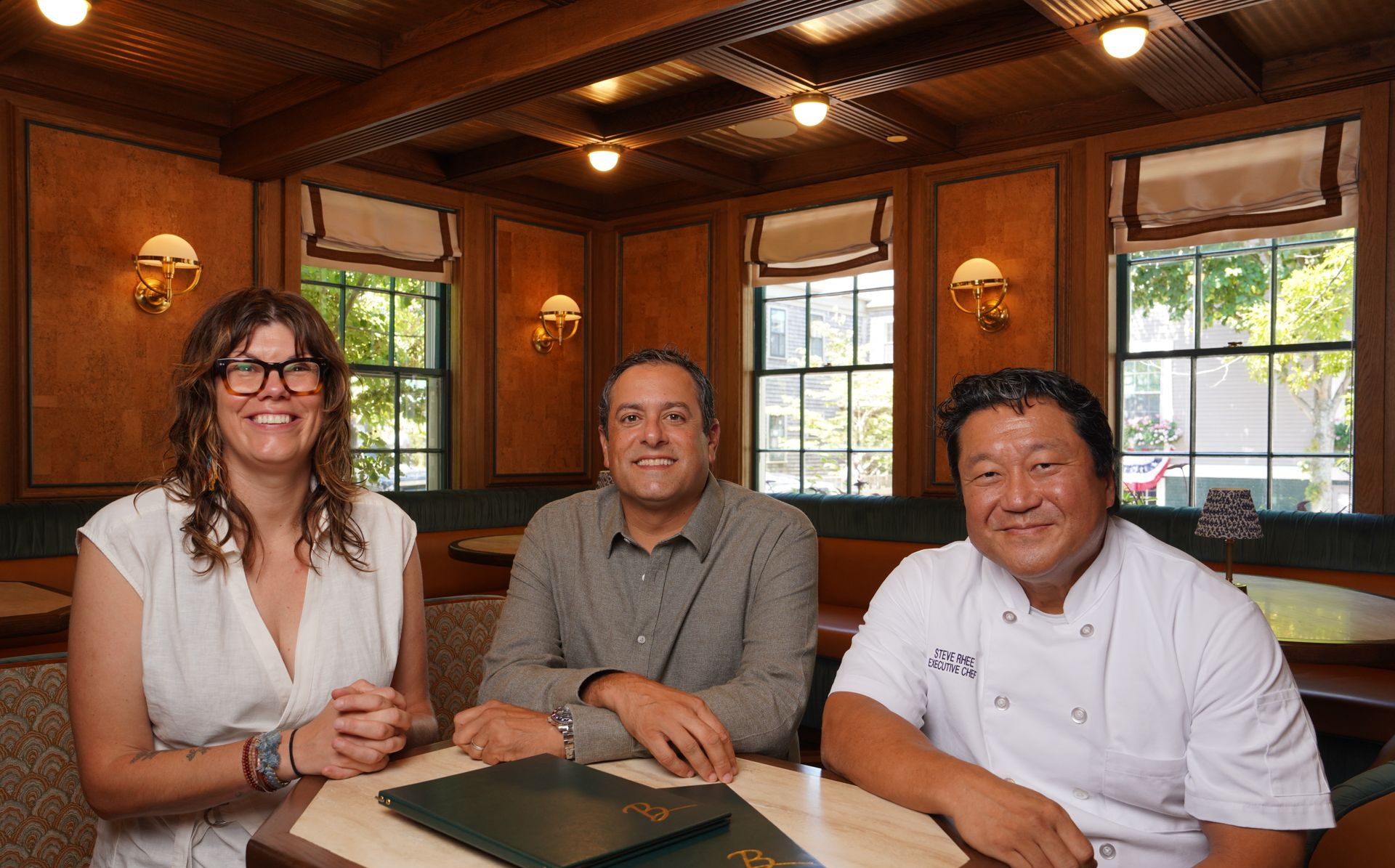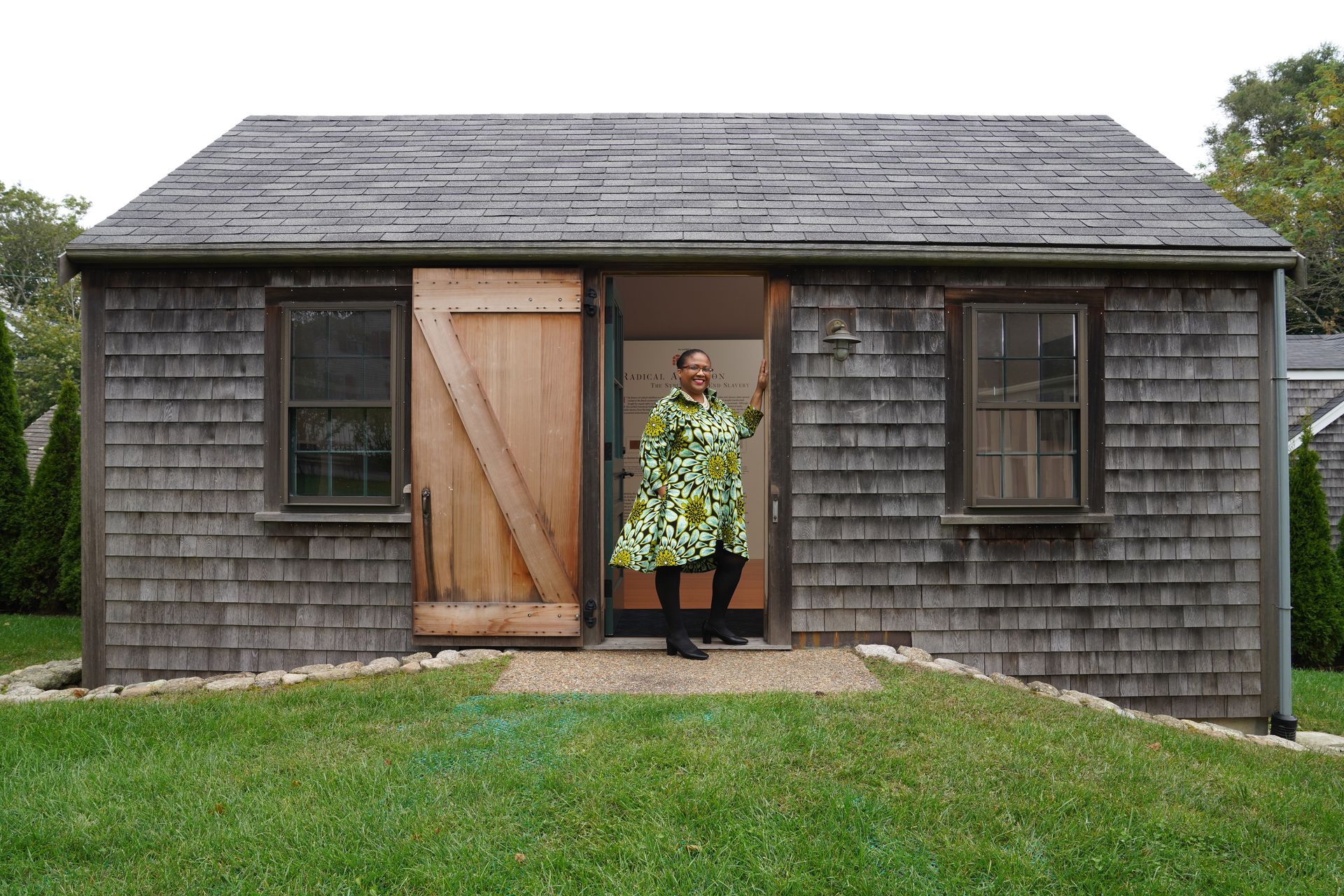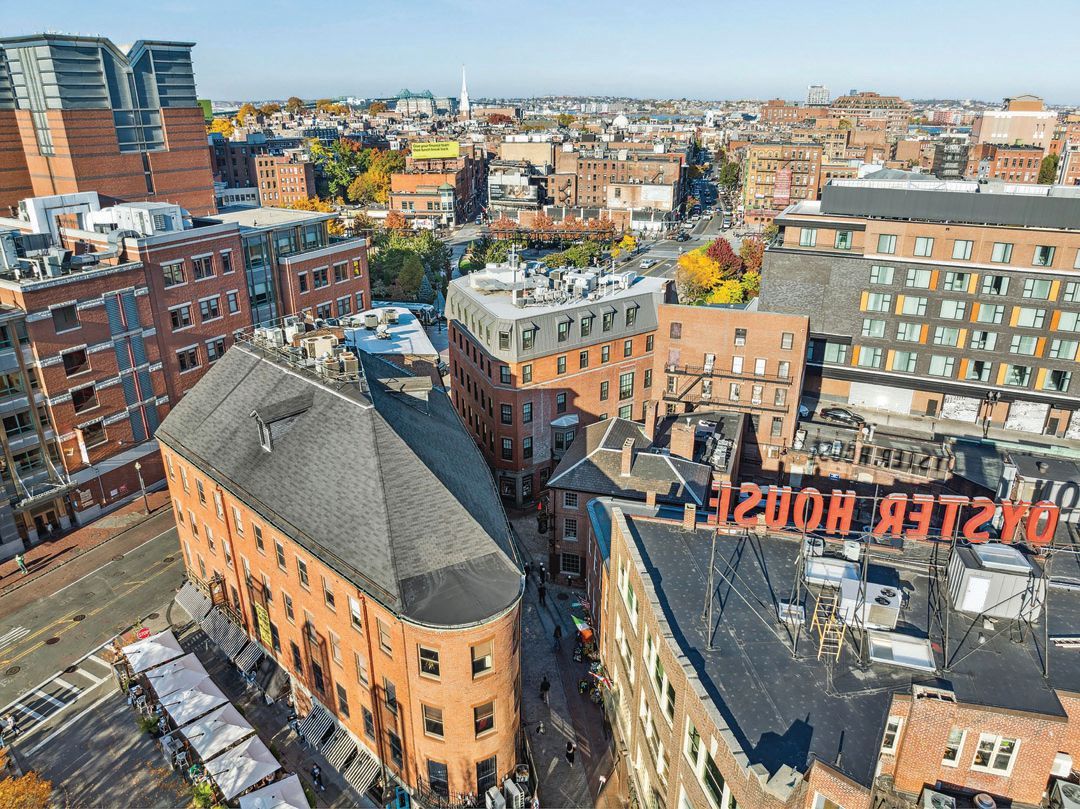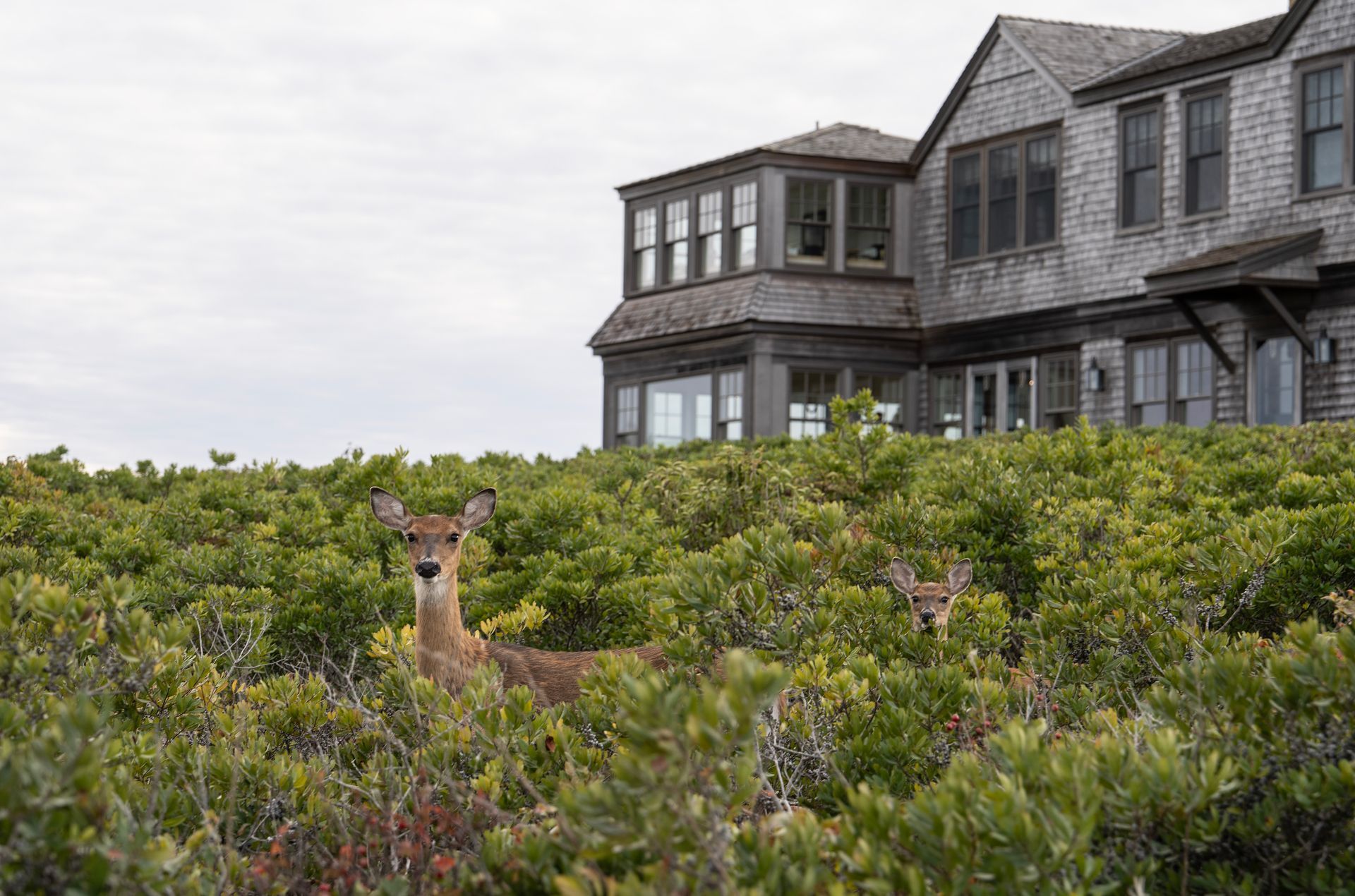Home at Last
Nourish Nantucket and the Land Bank to House the Food Pantry
Written by Brian Bushard
Photography by Kit Noble
It started as a Nantucket Elementary School class project in the spring of 1989. A group of children had heard stories of island families going to bed hungry, so they started a food drive, providing nonperishable goods to what was then a makeshift pantry in the basement of St. Paul’s Church. It was the first time the basement pantry accepted food outside of the holidays. It was also a wakeup call. Two years later, the Food Pantry had its own building.
In the three dozen years since that initial food drive, hunger on Nantucket has climbed dramatically. In 2023, an estimated 21% of year-round residents struggled to put food on the table, while 46% of Nantucket Public Schools students qualify for free and reduced school lunches. A new report from the Greater Boston Food Bank found 34% of households across the Cape and islands struggled with food insecurity in 2024, a 14% increase from just one year earlier.
The Food Pantry has become the most pivotal food provider but its lease with the town was set to expire and finding a new home became critical. Thanks to a collaboration between the Land Bank and Nourish Nantucket, the hunt for a new food pantry is now over, a critical step in solving the island’s food insecurity crisis. “Because of the space limitations of where [the pantry] is now, because the building is so small and their storage capacity is so small, they can only accept a certain amount of donations at a time before they have to get it out the door,” Nourish Nantucket Executive Director Meg Browers said.
In what became a highly charged story about the Food Pantry losing its lease, the search for a new home became a cause célèbres, given that the loss of services through the food pantry could have been catastrophic to the food security network. “The collaboration between the Land Bank and Nourish Nantucket in arriving at a joint solution to a pressing problem was an extraordinary example of the value of teamwork on Nantucket,” said Bruce A. Percelay, creator of Nourish Nantucket and chairman of its Advisory Council.
In a pivot from its conventional role as a conservation organization, the Land Bank entered into the food security arena as a result of its search for a facility to process deer meat that could be used as a high-quality protein for those lacking in balanced nutrition. The Land Bank was also looking for a place that could process other local meat products, to provide farmers with a sustainable butchery for locally raised livestock and poultry. As it happened, the Land Bank’s search coincided with Nourish Nantucket’s effort to find a home for both the Pantry and Nourish Nantucket itself. “This is the ideal collaboration we were looking for so we can work on agriculture, assisting with food insecurity and supporting local food systems,” Land Bank Executive Director Rachael Freeman said.
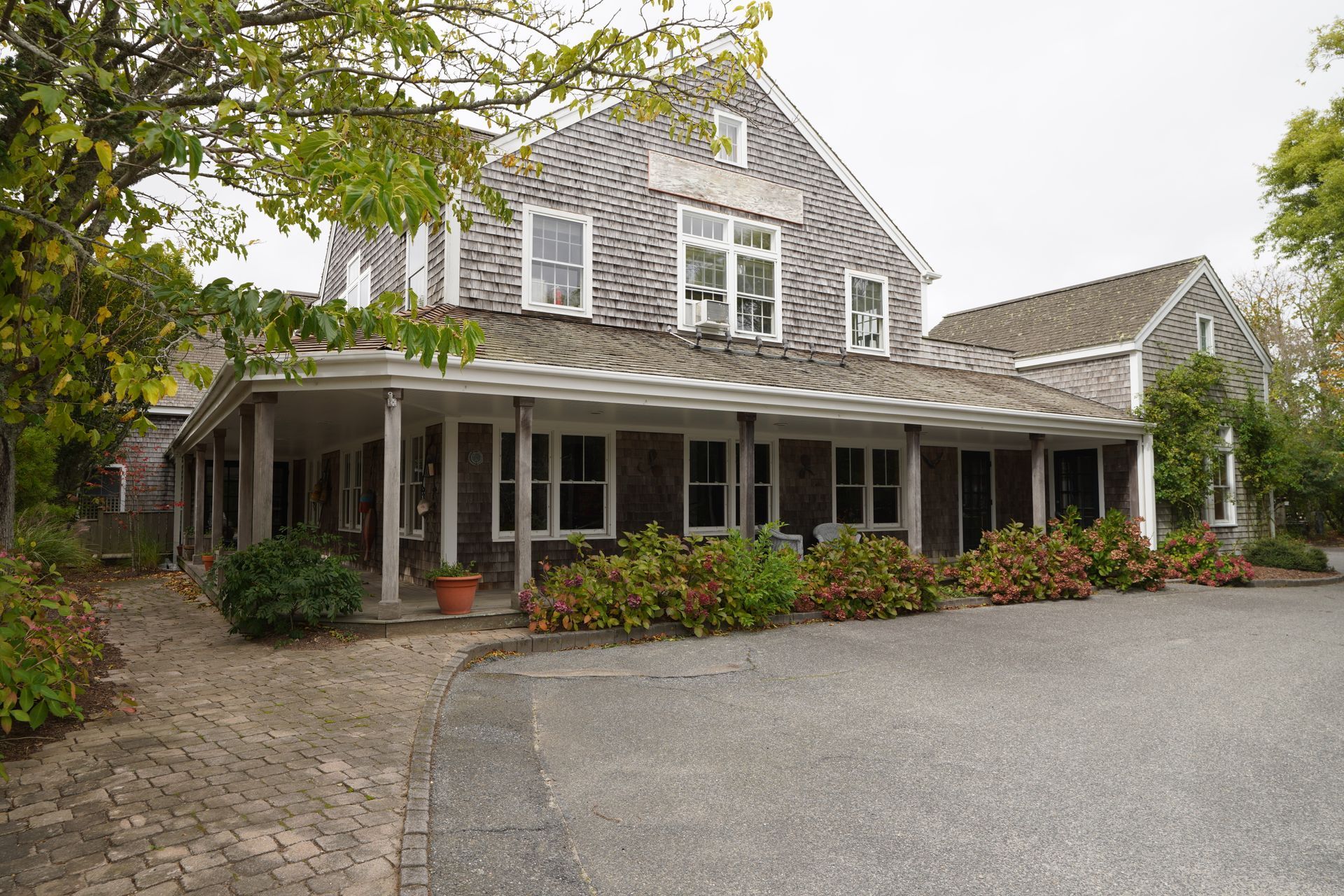
The new facility on Boynton Lane not only provides more storage space, it also gives participants more privacy compared to the downtown building and opens the door for a host of programs that advocates say can fill in the gaps when it comes to feeding islanders. According to Nourish Nantucket, filling those gaps—such as medically tailored food, deliveries and nutritious options—is crucial. “We describe the Food Pantry as the traditional backbone of the food security system, but the system needs to be a lot more than that, and that’s why we were looking for a space that could accommodate more programs than just a traditional food pantry,” said Brooke Mohr, Nourish Nantucket board president.
Among the new programs that will operate out of the Boynton Lane facility is a food rescue program to repurpose unused food from restaurants, hotels, inns and rentals. The venison processing facility, which will be staffed by the Land Bank, allows hunters to donate surplus deer to feed islanders in need while culling Nantucket’s overpopulation of deer—a state initiative currently not in existence on the island.
While food insecurity nationwide might be associated strictly with low-income earners, the problem on Nantucket has become so dire it now reaches a wide range of working people, including teachers, town employees and members of the Coast Guard. Even with decent pay, the combination of high rent, staggering home costs and a lack of affordable housing options has made food and basic supplies unaffordable to some islanders. "On Nantucket, you can make six figures and still be food insecure,” Browers said.
The Food Pantry is run under the Nantucket Food, Fuel and Rental Assistance program through the Nantucket Interfaith Council. Pantry Manager Ruth Pitts said a new space for the pantry is a game changer, though she admits the pantry can only go so far in addressing food security so long as islanders continue to struggle with high rent, language barriers and seasonal work. “[A new location] answers a whole lot of questions and it makes it more accessible,” she said. “If privacy affects just a few people who feel uncomfortable going to the Food Pantry, then we will be able to see more clients [at the new facility]. Really if we can see more clients, that's the goal.”
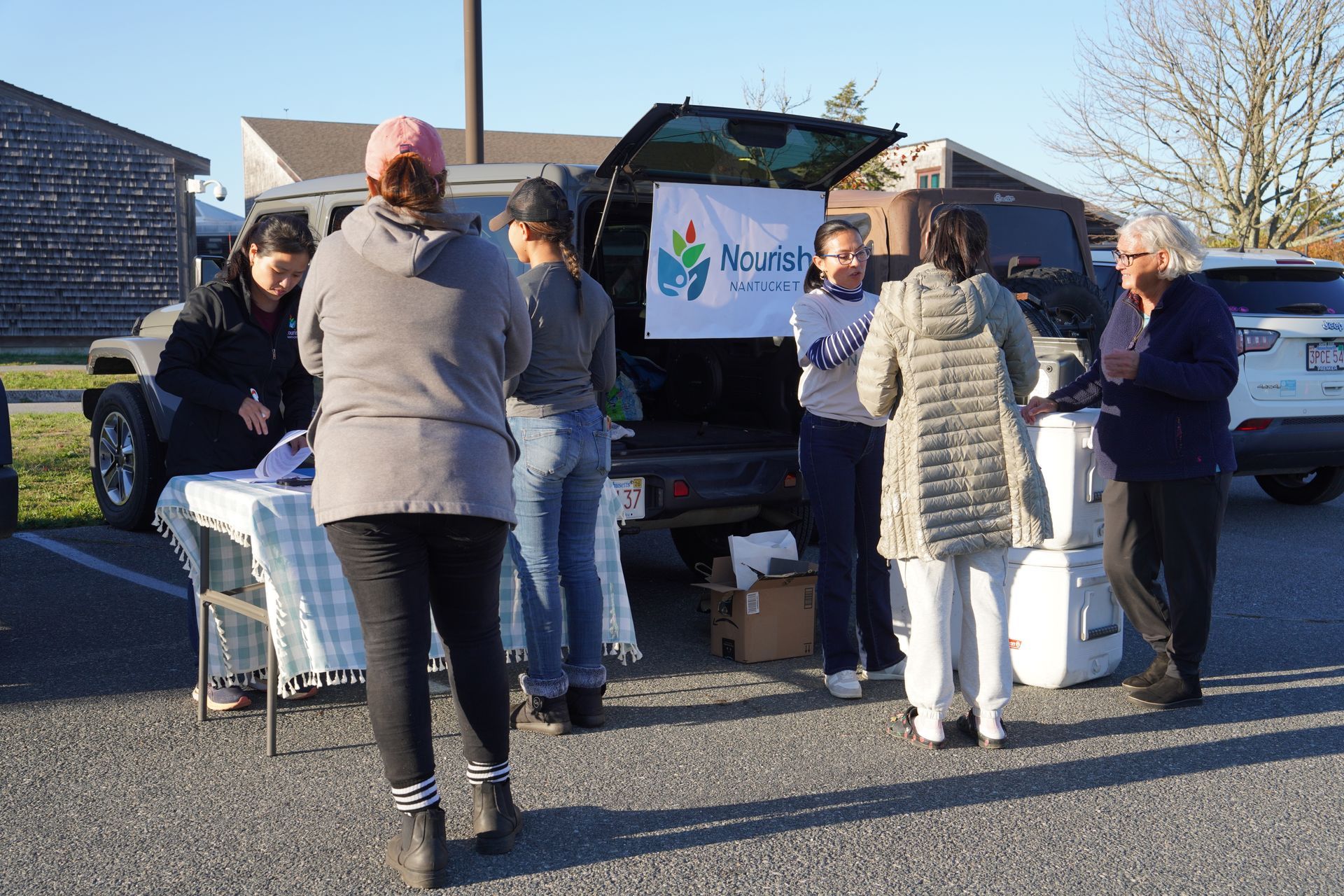
For the Land Bank, the property marks a significant expansion in its collaborative efforts with other island organizations to address issues that go well beyond the Land Bank’s three core tenets of conservation, recreation and agriculture—three areas it considers when purchasing land, according to its enabling act. “The Nantucket of today is different from the Nantucket when the Land Bank was born and we are now participating in broader solutions, including allocating some of our funding to address housing, coastal resilience and food insecurity,” Commission member Mark Donato said. Emily Goldstein Murphy, the Land Bank’s director of environmental and agricultural resources, added the deer processing facility combines all three arms of the Land Bank’s mission—agriculture through a livestock and poultry butchery, conservation by reducing the deer population, and recreation through hunting.
Bringing the new facility to fruition between multiple agencies and in a remarkably short period of time was not an easy task. According to Freeman, Percelay was instrumental in that process. “Between his skills in understanding real estate transactions and buildings plus commercial development and his negotiation capacity, he has been really influential.”
Throughout Nourish Nantucket’s first year, one point keeps coming up. Nantucket has no shortage of complex problems—a lack of affordable and workforce housing, sea-level rise and erosion. But hunger, unlike those issues, has a solution. "We’ll never fix the fact that people on this island struggle to make enough to afford the high cost of living here,” Browers said. “Our goal is to have food security programs that enable the people who are hungry to get the food they need."

